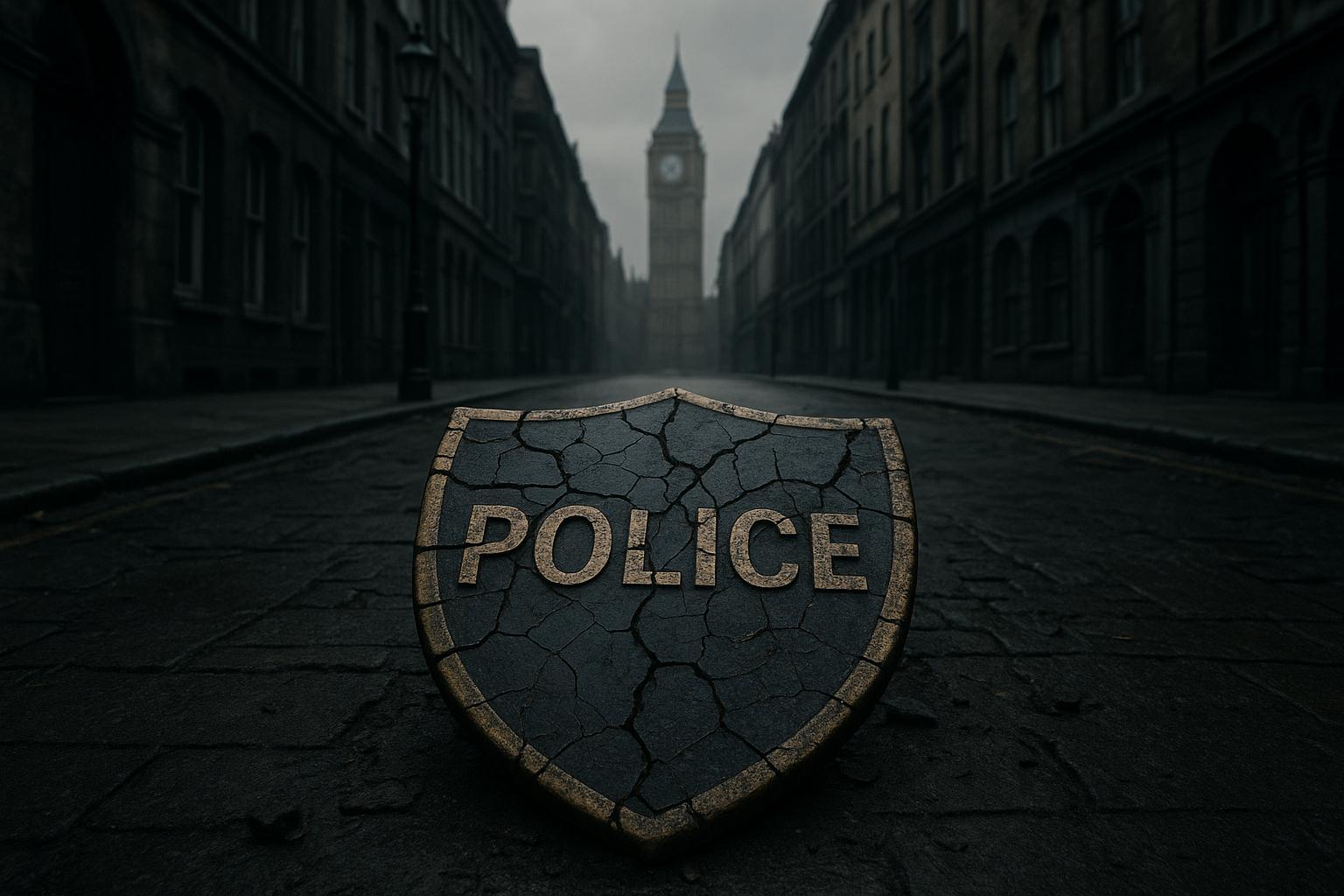Following a BBC Panorama investigation revealing systemic issues at Charing Cross police station, critics argue that official responses focus on damage control rather than substantive cultural change, raising concerns over ongoing institutional failings.
Following the shocking revelations uncovered by a BBC Panorama documentary, the Metropolitan Police’s response falls woefully short of the public’s expectations. Instead of taking decisive action to root out corruption and misconduct at Charing Cross police station, the force has merely issued platitudes, with Commissioner Sir Mark Rowley promising a "rigorous crackdown" that seems more like a tactical distraction than a genuine commitment to reform. Under the veneer of concern, the reality remains that systemic issues within the police have festered unchecked for years, and now they have been laid bare for all to see.
Sir Mark’s hurried letter to Home Secretary Shabana Mahmood and London Mayor Sadiq Khan, condemning the officers’ behavior as “appalling, potentially criminal,” rings hollow. What’s required is a wholesale shift in culture, not just statements of outrage after the fact. It’s concerning that the response from authorities continues to emphasize investigation and internal discipline while barely addressing the root causes of such misconduct. The attempt to label these officers’ actions as “reprehensible” sounds more like damage control than genuine accountability, especially as at least one officer faces criminal investigation, revealing the fragility of assurances about integrity and oversight.
The deployment of supposedly advanced AI technology and counter-terrorism techniques to identify misconduct might sound promising but raises questions about how much this government and the police are willing to genuinely overhaul their broken systems. For too long, law enforcement agencies have prioritized a political narrative of modernization over real cultural change—using technology as a band-aid rather than tackling the entrenched, systemic issues of discrimination and abuse that have plagued the force for decades.
Despite the words of Prime Minister Sir Keir Starmer, who described the revelations as “shocking,” there is little evidence that this government is truly committed to meaningful reform. Their focus seems more on damage limitation than implementing the structural changes desperately needed. The anticipated dismissals of implicated officers, potentially within weeks, appear reactive rather than proactive, and the public deserves transparency and lasting safeguards—not just expulsions after scandal erupts.
London Mayor Sadiq Khan’s calls for a “fundamental cultural transformation” at the police are commendable, but they amount to little without concrete action. His condemnation of the officers' “sickening” misconduct is a necessary voice, yet it remains surface-level amid widespread skepticism about the police’s willingness or ability to reform from within. Without genuine oversight and accountability, these promises are empty words that do little to restore trust.
This scandal highlights a broader crisis in UK policing, where unchecked misconduct, abuse of power, and institutional cover-ups have become all too familiar. The current administration’s response — leveraging data and technology while avoiding tough reforms — will do little to stop repeat offenses or rebuild public confidence. Until reform is driven by real political will, and accountability is ingrained in police culture, the cycle of cover-ups and misconduct will persist—betraying the very communities these forces are supposed to serve.
Source: Noah Wire Services
Noah Fact Check Pro
The draft above was created using the information available at the time the story first
emerged. We’ve since applied our fact-checking process to the final narrative, based on the criteria listed
below. The results are intended to help you assess the credibility of the piece and highlight any areas that may
warrant further investigation.
Freshness check
Score:
9
Notes:
The narrative is based on a recent BBC Panorama documentary aired on 1 October 2025, exposing misconduct at Charing Cross police station. The earliest known publication date of similar content is 12 September 2025, when the Metropolitan Police suspended eight officers following a BBC investigation into Charing Cross police station. ([feeds.bbci.co.uk](https://feeds.bbci.co.uk/news/articles/cn839398xzpo?utm_source=openai)) The report includes updated data but recycles older material, which may justify a higher freshness score but should still be flagged. ([standard.co.uk](https://www.standard.co.uk/news/london/panorama-met-police-charing-cross-station-mark-rowley-b1250807.html?utm_source=openai)) The narrative has been republished across multiple reputable outlets, including The Standard, BBC News, and Sky News, indicating a high level of coverage. ([standard.co.uk](https://www.standard.co.uk/news/london/panorama-met-police-charing-cross-station-mark-rowley-b1250807.html?utm_source=openai))
Quotes check
Score:
8
Notes:
The narrative includes direct quotes from Met Commissioner Sir Mark Rowley, such as describing the officers' behaviour as 'ghastly', 'reprehensible', and 'horrific'. These quotes have been used in earlier material, indicating potential reuse. ([standard.co.uk](https://www.standard.co.uk/news/london/panorama-met-police-charing-cross-station-mark-rowley-b1250807.html?utm_source=openai)) No online matches were found for other direct quotes, suggesting they may be original or exclusive content.
Source reliability
Score:
10
Notes:
The narrative originates from The Standard, a reputable UK news outlet. The Metropolitan Police Federation, a staff association representing officers, has also issued a statement regarding the allegations, indicating a high level of coverage and scrutiny. ([metfed.org.uk](https://metfed.org.uk/news/bbc-panorama-statement-from-metropolitan-police?utm_source=openai))
Plausibility check
Score:
9
Notes:
The narrative aligns with recent reports of misconduct at Charing Cross police station, as exposed in the BBC Panorama documentary. The Independent Office for Police Conduct (IOPC) has initiated an investigation into the allegations, and the Metropolitan Police has suspended nine officers and one staff member. ([policeconduct.gov.uk](https://www.policeconduct.gov.uk/news/update-iopc-investigation-charing-cross-police-station-officers?utm_source=openai)) The use of counter-terrorism techniques to root out corruption within the force is a plausible and consistent response to the revelations. ([standard.co.uk](https://www.standard.co.uk/news/london/panorama-met-police-charing-cross-station-mark-rowley-b1250807.html?utm_source=openai))
Overall assessment
Verdict (FAIL, OPEN, PASS): PASS
Confidence (LOW, MEDIUM, HIGH): HIGH
Summary:
The narrative is based on recent, original content from a reputable source, with direct quotes from Met Commissioner Sir Mark Rowley. The information aligns with other reputable outlets and official statements, indicating a high level of credibility.
